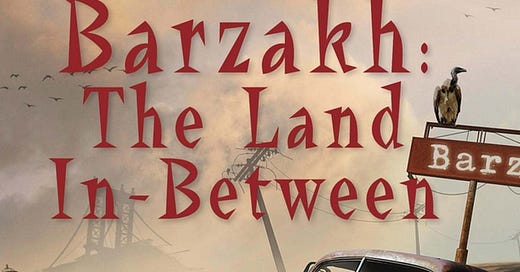Review: Cruelty stings like sand in a desert breeze
A rare translation brings reflections on humanity back from the future.
Jacqueline Nyathi
Barzakh: The Land In-Between opens with a prelude from the far future: archaeologists are excavating the memories and consciousness of Gara, a long-dead man from the Mauritanian Sahara, by processing crystals extracted from his skull.
Then we shift to Gara’s perspective – his memories of living as an enslaved boy, then jumping forward in time to our near-future, where his descendants rule over an authoritarian desert nation on a dying Earth. Gara is a disillusioned time-traveller searching in vain for a better version of humanity, who he had once assumed would one day evolve away from brutality and cruelty.
Barzakh explores Mauritanian life and culture through an evocative depiction of the life of desert dwellers and nomads, and the desert economy, with a piercing examination of slavery and racism. Its science fiction profits from the construction and operation of vividly imagined facilities in the “useless” desert that store and reprocess radioactive waste from the depleted and polluted planet.
Of course, at the cost of the workers who are forced to work in them, and of any remaining desert-dwelling communities and surrounding wildlife. Naturally, there’s a guerilla movement called “Save the Sahara”, a group of former nomads, fighting to save the land.
Moussa Ould Ebnou’s novel sets itself apart by being a rare English translation from that part of the continent.
His visions of desert life are dreamy and his style and pacing are meditative and slow, adding to the feeling of traversing the desert of time; this is part of what makes this narrative feel trippy. Even those who enjoy unusual and interesting perspectives in speculative fiction won’t have read many books like it.




